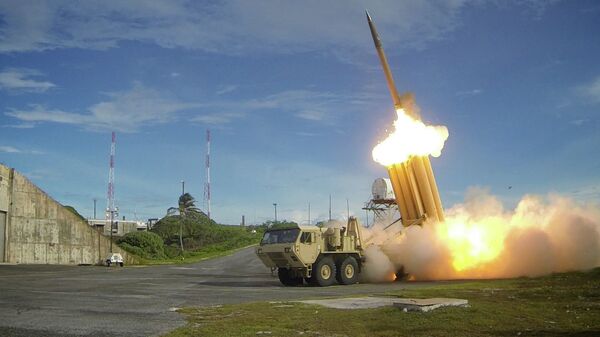On Sunday, the office of South Korean President Park Geun-hye issued a stringing rebuke of Chinese criticism regarding its decision to deploy the Terminal High Altitude Area Defense (THAAD) anti-missile system in conjunction with the US military citing security concerns posed by North Korea.
Park’s senior press secretary, Kim Sung-woo, said in a statement that recent commentary carried by China’s state media was "out of place" for blaming South Korea for tensions on the Korean peninsula. China argued that the move would only exacerbate the growing sense of desperation by the faltering regime of Kim Jong-un in North Korea, while South Korea expressed concern that recent ballistic missile tests by the increasingly unhinged leader in Pyongyang pose an imminent threat to Seoul’s safety.
"Rather than taking issue with our purely defensive action, China should raise issue in a strong manner with North Korea which is breaking peace and stability on the Korean peninsula and Northeast by conducting four nuclear tests and, just this year, launching more than 10 ballistic missiles," said the statement.
Beijing has long protested any move to introduce missile defense shields in the region saying that it would destabilize the regional security balance increasing the likelihood that North Korea feels its hand is forced. China has also expressed concern that Washington is looking to encircle Beijing and worries that the first introduction of a missile defense system in South Korea will set off a regional proliferation.
On Wednesday, China’s People’s Daily said in an editorial, "It is impossible for South Korea’s leader not to know America’s strategic plot. She is well aware of the real direction of the THAAD anti-missile system."
"She has no hesitation about undermining regional stability and flagrantly damaging the security interests of neighboring powers," the editorial stated.
North Korea has launched a bevy of missiles over the past year, the most recent of which was fired off on Wednesday travelling about 600 miles (1,000km) landing near Japanese-controlled waters, a more or less successful test that greatly raises the stakes throughout the region.






